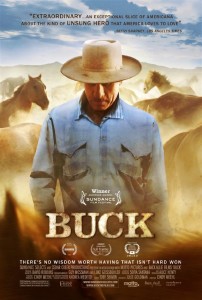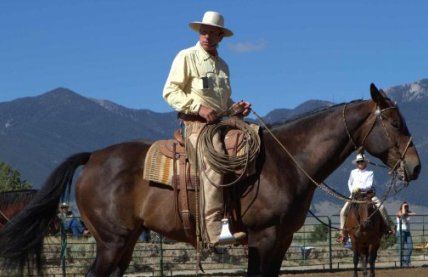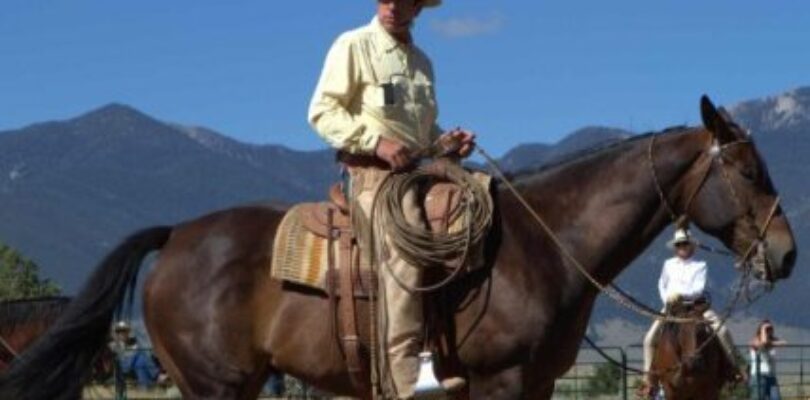
| Release Date: | June 24th, 2011 at the Maple Art Theater in Bloomfield Hills, Michigan |
| Starring: | Buck Brannaman |
| MPAA Rating: | PG |
| Director: | Cindy Meehl |
Toward the beginning of Buck, a documentary directed by Cindy Meehl, the film’s titular subject Buck Brannaman says something along the lines of, “I’m helping horses with people problems.” Brannaman, the real life inspiration for the film The Horse Whisperer, deftly calms frightened horses and saddles young colts with quiet ease. His astonishing gentleness and compassion towards these horses is rooted in a deep understanding of human nature, which is further revealed through the equestrian workshops he teaches. It is Brannaman’s profound insight into nature, whether exemplified through his interactions with humans or horses, that makes Buck a film worth watching.

Throughout Buck, it is difficult not to be struck by the simplistic genius of Brannaman’s equestrian practices. Buck approaches each horse in a very psychological manner, examining their mannerisms, and then deducing their history from behavior. Training methods such as restraining, whipping, or forcing horses into painful positions can make horses fearful and skittish. Yet these methods became the accepted norm based on the assumption that it was the only way to tame or break a horse. Brannaman proves that these methods actually make horses more difficult to work with, and that by gaining an animal’s trust and treating a horse with respect, people can enjoy far more rewarding relationships with their horses.
While Buck garners the viewer’s interest easily, it does not go deeply enough into the psychology and philosophy that drives the movie. That is, that living creatures respond and grow from kindness and compassion more than they do from pain or fear. Buck focuses more on the results of Buck’s workshops, which are indeed extraordinary, but it is also fascinating just to hear Buck speak. Especially after his friends testify to what a shy man Buck used to be, and to how hard he had to work to be able to get up and teach in front of people. His charismatic excitement may seem a little hokey at first, but it is hard won. Watching his success is honestly heart warming.

[/box_info]

